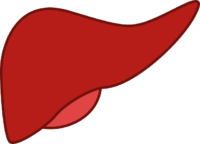Paving way towards a healthy liver
India has witnessed a steady increase in liver diseases over the years. Considering the essential functions the organ performs, it becomes essential to maintain and improve liver health. Any disturbance in the functioning of the liver can cause significant damage to the body.
Liver diseases can be classified as acute or chronic. Hepatitis A and Hepatitis E are acute liver infections that are transmitted from contaminated food and water, typically lasting for a short span of time. These conditions can lead to jaundice in individuals as well as large outbreaks. They are usually self-limiting and need only symptomatic treatment they don’t give rise to chronic sequelae. Rarely these can cause fulminant hepatic failure which can be fatal. Hepatitis B and C, on the other hand, are viral infections which often cause chronic liver disease called cirrhosis. Another fast emerging cause for chronic liver disease is Non-Alcoholic Steatohepatitis (NASH) which is a non-infectious disease associated with lifestyle factors like obesity and diabetes and dyslipidemia. Excessive alcohol consumption is another major cause of cirrhosis. People who consume alcohol almost daily for more 8 to 10 years are at an increased risk of cirrhosis.
Carcinoma Advanced cirrhosis is irreversible and needs to be treated for conditions like water accumulation and bleeding and encephalopathy. Cirrhosis, in a small percentage of patients can develop liver cancer, also known as primary hepatocellular cancer.
To monitor for cancer, patients with cirrhosis are kept under constant supervision through blood tests and sonography. Alpha-fetoprotein (AFP), a blood test, is the tumor marker for hepatocellular carcinoma while sonography tends to pick up small nodules which are then further investigated. While only small percentage of patients develop hepatocellular carcinoma, a regular screening helps detect the condition early. It can be treated through surgery, invasive radiological techniques as well as medicines.


The symptoms of rejection in a person who has undergone a liver transplant are the same as liver diseases – jaundice, oedema, weight loss, etc. Precautions like careful donor selection, regular monitoring, and proper compliance with medical therapy, regular follow-ups and blood tests can help recognize rejection early and treat the same.
While Hepatitis A and Hepatitis B can be prevented through early vaccination, there is still no vaccine for Hepatitis E and C. Hepatitis B and C can also be prevented by avoiding use of contaminated needles especially in cases of parenteral drug abusers and also avoiding multiple sexual partners, etc. Maintenance of safe sex precautions, proper sterilization of instruments used in surgical and dental practice, using sterile disposable needles at all levels, etc. ensures minimization of this transmission.
NASH is a lifestyle disease that can be prevented by controlling diabetes, body weight, cholesterol, and leading a healthy lifestyle.
Administering hepatitis A and hepatitis B vaccine is the key to prevent liver diseases. Vaccination starts a few months after birth. Every country has a different program of vaccination for Hepatitis A, the acute variety and Hepatitis B the chronic variety. In some countries both these vaccinations are combined. In India, it is part of the primary immunization. There are three doses for Hepatitis B, at 0, 1 month, and 6 months and 2 doses for Hepatitis C. Women, if unvaccinated, should get vaccinated for Hepatitis B as a mother can transmit the virus to the newborn. Thus, it is extremely important that vaccination programs should reach one and all.
Dr.Saifee Plumber
Head of Department- Gastroenterology and Hepatology
Saifee Hospital Mumbai











